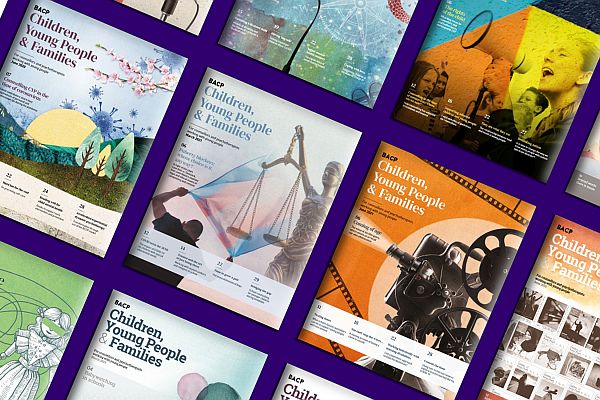No-one sets out to use food as a coping strategy. It’s usually an unconscious decision, becoming a life raft to cling to, when life throws turbulence and uncertainty at your door.
And it's helpful to view an eating disorder through this lens, as a desperate attempt to survive and be okay, rather than selfish vanity or something else. It opens the door to compassion and understanding about eating disorders.
Initially, an eating disorder offers respite and safety, whether that be through distraction in controlling food portions or numbing pain with the comfort of tea and cake. Quickly, the coping can bring problems and further anguish though. Once on the food preoccupation path, it can feel tricky to leave and walk in a different direction. To understand eating disorders better, we can explore three common coping strategies.
Numbing
If you get laser focused with food preoccupation or body goals, life is instantly simplified. Steps walked, foods eaten (or not) and weights achieved – these become the variables to determine whether the day has gone well or not. Relationship problems, work stress and life dramas blend into the background and feel distant. You are in a protective bubble, which is stifling and restrictive but also safe and known. Emotions may heighten around food but otherwise, you care much less about the problems that bothered you before. They are on hold, and this brings relief.
The numbing does shield and offers emotional respite, but you are effectively cutting yourself off from feelings, as you could with alcohol, drugs, gambling or working too much. The feelings don’t go away but accumulate under the carpet, occasionally flooding out in a tidal wave of emotion that is unbearable. It then reinforces your belief that emotions are intolerable and best avoided.
Worth
In a culture that values thinness and wellness, with Instagram photos of perfectly toned bodies equaling validation and success through likes, it’s not surprising that controlling food can seem like it’s the passport to boosting self-worth. The message from diet culture is pervasive and influential. If you lose weight, you’ll feel better. When self-esteem is on the floor, a glimmering sense of achievement is welcomed through the good work of counting calories, macros or seeing the number on the scales decrease.
Of course, it's not a sustainable solution or a provider of results, as the goal posts move and shift towards lower numbers, with the outcome never being good enough. The seductive slippery slope pulls you downwards further chasing the hope of worth, which slides increasingly out of reach. You feel desperately alone, empty, and any lingering self-esteem drains away.
Control
When life throws you a curveball and uncertainty looms its ugly head with full force, you can understandably be drawn to controlling something that is truly yours to control. A relationship with food and your body is deeply personal and private. No-one can make you eat or know exactly the nuances and secret rituals you may have around food. Planning and meticulously preparing, scanning menus, reading food labels, writing down the calories in your notebook with goals and dates and deciding special binge foods to devour away from everyone – these provide the fabric and structure of your day. This is a private and secluded world, where others cannot influence or dictate. It's your safe and predictable space, which cannot be invaded. You feel in control. At least to begin with.
What starts out with order and control, can quickly spiral into a monster that can devour you. As control tightens, the healthy part of you screams for freedom and will rebel against the repression of self-imposed control. Again, you're left with the bottom line of not feeling enough. The level of control you desire is almost impossible to achieve. You romanticise the days when you've managed to follow the rules, and push expectations high to do this again. It’s an impossible task as the rules have taken on a new force and rigidity. You're left feeling a failure and increasingly out of control.
It’s helpful to understand an eating disorder as a coping strategy, to bring greater insight and understanding. Although these coping methods helped you survive in a time where other ways did not feel feasible, they cannot fulfil or meet your needs sustainably. The longer left, they can become habits and harder to shift.
Recovery from an eating disorder requires a psychological approach, and with support, you can learn new and healthy ways of coping, rather than resorting to food or manipulating your body. Do seek help through counselling or therapy, as recovery is possible.
Find out more about Eating Disorders Awareness Week from 28 February to 6 March 2022.
Read more...

BACP Children, Young People and Families division
BACP CYPF is for practitioners and other professionals interested in counselling and psychotherapy for children and young people.

BACP Children, Young People and Families
Subscribe for free access to the online journal

Blogs and vlogs 2022
News and views from members, staff and clients
Views expressed in this article are the views of the writer and not necessarily the views of BACP. Publication does not imply endorsement of the writer’s views. Reasonable care has been taken to avoid errors but no liability will be accepted for any errors that may occur.
